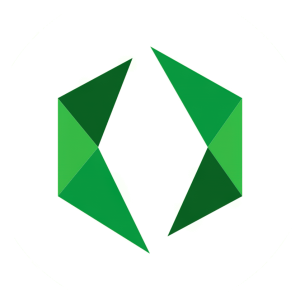Revolution Medicines Announces First Patient Dosed in Phase 3 Clinical Trial Evaluating Daraxonrasib in Previously Treated Patients with RAS Mutant Non-Small Cell Lung Cancer
Rhea-AI Summary
Positive
- Advancement to Phase 3 trial indicates promising development progress
- Large addressable market with 30% of NSCLC cases having RAS mutations
- Early trial data showed acceptable safety profile and encouraging antitumor activity
- Potential to offer targeted therapy where currently only chemotherapy is available
Negative
- Early-stage results are from single-arm trial only
- Competition from existing chemotherapy treatments
- Long timeline for Phase 3 completion with 420 patients
- No guarantee of successful trial outcomes or FDA approval
News Market Reaction
On the day this news was published, RVMD declined 1.18%, reflecting a mild negative market reaction.
Data tracked by StockTitan Argus on the day of publication.
REDWOOD CITY, Calif., May 14, 2025 (GLOBE NEWSWIRE) -- Revolution Medicines, Inc. (Nasdaq: RVMD), a late-stage clinical oncology company developing targeted therapies for patients with RAS-addicted cancers, today announced the first patient has been dosed in RASolve 301, a global, randomized, open-label Phase 3 clinical trial. RASolve 301 will evaluate the safety and efficacy of daraxonrasib (RMC-6236), a RAS(ON) multi-selective inhibitor, in patients with previously treated, locally advanced or metastatic RAS mutant non-small cell lung cancer (NSCLC) compared to docetaxel chemotherapy.

RASolve 301 is anticipated to enroll approximately 420 patients with NSCLC worldwide who have received one to two prior lines of therapy for the treatment of advanced disease including an anti-PD-1/anti-PD(L)-1 agent and platinum-based chemotherapy. The pivotal clinical trial is designed to include a core population of patients with NSCLC carrying RAS mutations at position G12 (G12X), and an expanded population that also includes patients with tumors carrying other specific RAS mutations. The dual primary endpoints are progression-free survival (PFS) and overall survival (OS) in the core patient population. Key secondary endpoints include PFS, OS and objective response rate (ORR) in the expanded population.
“We are pleased that dosing is underway in the RASolve 301 Phase 3 clinical trial, an important step in developing daraxonrasib, a highly innovative compound that targets a diverse array of RAS mutations that drive tumor growth in
The company’s decision to evaluate daraxonrasib as a monotherapy in this NSCLC setting was informed by early evidence from a single-arm trial showing the compound had an acceptable safety profile and encouraging antitumor activity. Daraxonrasib is also being evaluated in the RASolute 302 clinical trial, which is a global, randomized Phase 3 trial evaluating daraxonrasib versus standard of care chemotherapy in second-line patients with previously treated metastatic pancreatic ductal adenocarcinoma (PDAC).
About Non-Small Cell Lung Cancer and RAS Mutations
More than 197,000 people are diagnosed with non-small cell lung cancer (NSCLC) in the U.S. each year.1 Despite treatment advancements, NSCLC remains a leading cause of cancer-related mortality worldwide, primarily due to its late-stage diagnosis and limited response to conventional therapies. RAS mutations are among the most common oncogenic drivers in NSCLC, occurring in approximately
About Daraxonrasib
Daraxonrasib (RMC-6236) is an oral, direct RAS(ON) multi-selective inhibitor with the potential to help address a wide range of cancers driven by oncogenic RAS mutations. Daraxonrasib suppresses RAS signaling by blocking the interaction of RAS(ON) with its downstream effectors. It does so by targeting oncogenic RAS mutations G12X, G13X and Q61X that are common drivers of major cancers including pancreatic ductal adenocarcinoma (PDAC), non-small cell lung cancer (NSCLC) and colorectal cancer (CRC).
About Revolution Medicines, Inc.
Revolution Medicines is a late-stage clinical oncology company developing novel targeted therapies for patients with RAS-addicted cancers. The company’s R&D pipeline comprises RAS(ON) inhibitors designed to suppress diverse oncogenic variants of RAS proteins. The company’s RAS(ON) inhibitors daraxonrasib (RMC-6236), a RAS(ON) multi-selective inhibitor; elironrasib (RMC-6291), a RAS(ON) G12C-selective inhibitor; and zoldonrasib (RMC-9805), a RAS(ON) G12D-selective inhibitor, are currently in clinical development. The company anticipates that RMC-5127, a RAS(ON) G12V-selective inhibitor, will be its next RAS(ON) inhibitor to enter clinical development. Additional development opportunities in the company’s pipeline focus on RAS(ON) mutant-selective inhibitors, including RMC-0708 (Q61H) and RMC-8839 (G13C). For more information, please visit www.revmed.com and follow us on LinkedIn.
Forward Looking Statements
This press release contains forward-looking statements within the meaning of the U.S. Private Securities Litigation Reform Act of 1995. Any statements in this press release that are not historical facts may be considered "forward-looking statements," including without limitation statements regarding progression of clinical studies and findings from these studies, including the safety, tolerability and antitumor activity of the company’s candidates being studied and the durability of these results; dosing and enrollment in the company’s clinical trials; and the potential of daraxonrasib as a therapeutic option for NSCLC or PDAC. Forward-looking statements are typically, but not always, identified by the use of words such as "may," "will," "would," "believe," "intend," "plan," "anticipate," "estimate," "expect," and other similar terminology indicating future results. Such forward-looking statements are subject to substantial risks and uncertainties that could cause the company’s development programs, future results, performance or achievements to differ materially from those anticipated in the forward-looking statements. Such risks and uncertainties include without limitation risks and uncertainties inherent in the drug development process, including the company’s programs’ current stage of development, the process of designing and conducting preclinical and clinical trials, risks that the results of prior clinical trials may not be predictive of future clinical trials, clinical efficacy, or other future results, the regulatory approval processes, the timing of regulatory filings, the challenges associated with manufacturing drug products, the company’s ability to successfully establish, protect and defend its intellectual property, other matters that could affect the sufficiency of the company’s capital resources to fund operations, reliance on third parties for manufacturing and development efforts, changes in the competitive landscape, and the effects on the company’s business of the global events, such as international conflicts or global pandemics. For a further description of the risks and uncertainties that could cause actual results to differ from those anticipated in these forward-looking statements, as well as risks relating to the business of Revolution Medicines in general, see Revolution Medicines’ Quarterly Report on Form 10-Q filed with the Securities and Exchange Commission (the “SEC”) on May 7, 2025, and its future periodic reports to be filed with the SEC. Except as required by law, Revolution Medicines undertakes no obligation to update any forward-looking statements to reflect new information, events or circumstances, or to reflect the occurrence of unanticipated events.
Revolution Medicines Media & Investor Contact:
media@revmed.com
investors@revmed.com
1 American Cancer Society. Key Statistics for Lung Cancer. Available at: https://www.cancer.org/cancer/types/lung-cancer/about/key-statistics.html. Accessed May 2025.
2 Reita D, Pabst L., Pencreach E, et al. Direct Targeting KRAS Mutation in Non-Small Cell Lung Cancer: Focus on Resistance. Cancers (Basel). 2022; 14(15):1321. doi: 10.3390/cancers14051321.
A photo accompanying this announcement is available at https://www.globenewswire.com/NewsRoom/AttachmentNg/2e5dbb1b-2634-4a05-8783-3174ae608dbb








